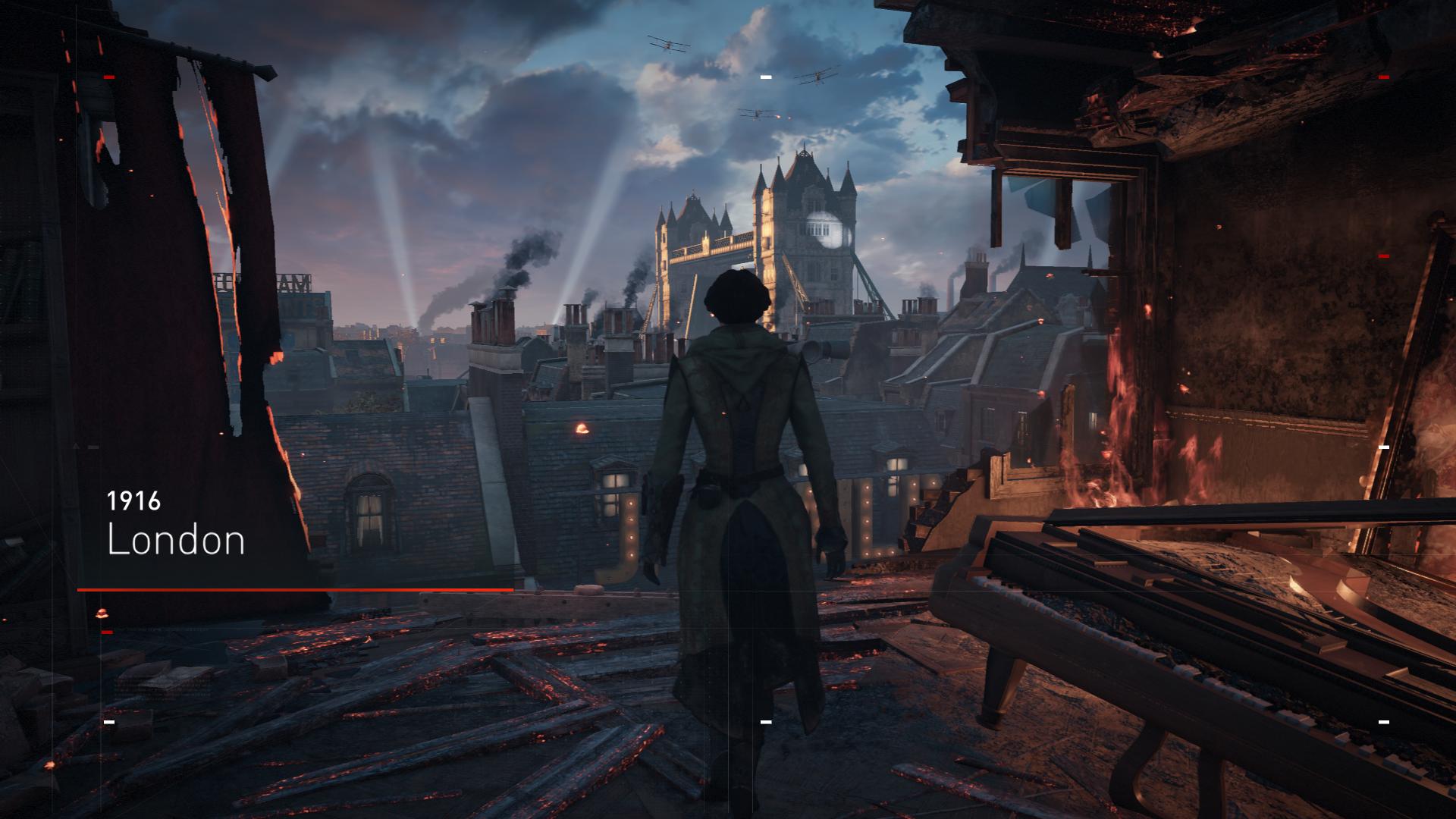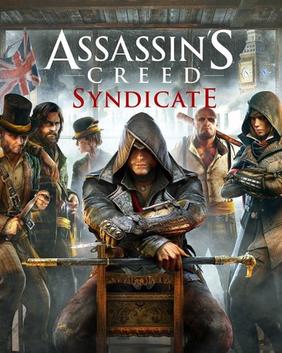Great moments in PC gaming: World War I in Assassin's Creed Syndicate
Already one of the better Assassin's Creed games, Syndicate distinguishes itself with a lengthy digression through time.

Great moments in PC gaming are bite-sized celebrations of some of our favorite gaming memories.

Year: 2015
Developer: Ubisoft
Six chapters in, Assassin's Creed Syndicate deposits a marker on the edge of its map of Victorian London. You jump from boat to boat across the river to reach it, Froggering across the Thames. And there you find a hole in the simulation, a gap in space with the bombed-out London of 1916 on the other side. Step through and you're transported decades into the future, suddenly inhabiting the granddaughter of one of the previous protagonists as she hunts spies and traitors across London.
If you're going to do one iconic era of London—all horse-drawn carriages, top hats, and train murders—why not do another? Why not also do World War I, with zeppelins and recruitment posters and Winston Churchill asking you to be his personal spycatcher in return for the thanks of a grateful nation?
It is, in the grand tradition of Assassin's Creed, sort of nonsense. Churchill's base is in the middle of Tower Bridge, you take over an experimental anti-aircraft gun to shoot down biplanes, and nobody pays much mind as you run across rooftops, fighting enemies recycled from decades before.
Yet it looks right. The sun is always setting, searchlights picking out the clouds, smoke drifting past cranes, people huddled in boarded-up buildings. Where Syndicate's London of 1868 is a zipline playground, here even the collectibles are maudlin—letters home from soldiers, most with notes at the end telling you how many days after writing them they died.
It's a perfect contrast to the London where Charles Dickens recruits you to hunt Spring-Heeled Jack, where the underground boxing ring missions are just straight-up called Fight Clubs. Before first-person shooters got around to exploiting the possibilities of World War One as a setting, Assassin's Creed did it with an unusually deft hand, balancing blatantly made-up stuff with enough actual history to make it feel like you experienced a moment that mattered.
Keep up to date with the most important stories and the best deals, as picked by the PC Gamer team.

Jody's first computer was a Commodore 64, so he remembers having to use a code wheel to play Pool of Radiance. A former music journalist who interviewed everyone from Giorgio Moroder to Trent Reznor, Jody also co-hosted Australia's first radio show about videogames, Zed Games. He's written for Rock Paper Shotgun, The Big Issue, GamesRadar, Zam, Glixel, Five Out of Ten Magazine, and Playboy.com, whose cheques with the bunny logo made for fun conversations at the bank. Jody's first article for PC Gamer was about the audio of Alien Isolation, published in 2015, and since then he's written about why Silent Hill belongs on PC, why Recettear: An Item Shop's Tale is the best fantasy shopkeeper tycoon game, and how weird Lost Ark can get. Jody edited PC Gamer Indie from 2017 to 2018, and he eventually lived up to his promise to play every Warhammer videogame.

